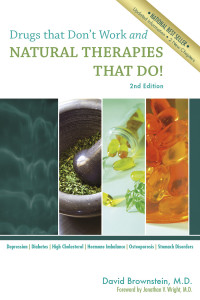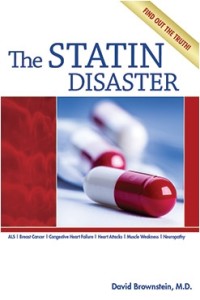The headline in the New York Times (NYT) this morning–8.28.2017– states, “Anti-Inflammatory Drug May Lower Risk of Heart Disease and Cancer. Findings Represent Medical Milestone.”
I am getting tired of using the “Fake News” meme when describing medical articles in the NYTs. But, this article is beyond ridiculous and I can think of no better way to describe it. This is another example of fake news and why we are in the health care mess we are in.
My wife, Allison, showed me the NYT article this morning. I glanced at the headline and said to her, “There is no way that way-too-expensive drug will lower the risk of heart disease or cancer because of its mechanism of action.” I told her I was going to pull the original New England Journal of Medicine (NEJM) article (http://www.nejm.org/doi/full/10.1056/NEJMoa1707914?query=featured_home) and do the statistics on my own.
Here’s my analysis of this “medical milestone”.
This was a randomized, double-blind trial of Canakinumab (brand name Ilaris), a drug that poisons interleukin-1β (IL1β). IL1β is produced by the white blood cells and is involved in a variety of cellular processes including producing fever. Fever is the body’s response to an infection. The body increases its temperature in order to kill pathogens that have infected it. IL1β is also associated with other cellular functions including cell proliferation, differentiation and apoptosis—programmed cell death.
Inflammation is a normal response of the body to injury, trauma, or infection. Signs of inflammation—redness, warmth, pain, and swelling–are common. Inflammation is stimulated by the inflammatory cascade which includes molecules like IL1β. IL1β and other inflammatory molecules are not bad actors,0 rather they are much-needed molecules used to help the body heal from an inflammatory insult. In the case of a fever due to an infection, the elevated temperature is there to help the body kill the bacterium or virus and to also stimulate other immune system cells to come to the aid. In the case of an ankle sprain, the swelling, redness and warmth around the ankle serves the purpose to recruit other immune system cells to the area to remove the injured tissue so that new tissue can take its place. Without the inflammatory response, the body would never heal from an injury.
Why would you want to take a medication for the long-term that inhibits the healing reactions of the body?
Although commonly used anti-inflammatory medications such as aspirin, Motrin or Tylenol, can reduce fever and pain, there are many studies that the long-term use of anti-inflammatory medications acutally slows the healing process and can lead to other serious problems. IF there is an inflammatory problem in the body, the doctor should actively search for what is causing the inflammation in the first place and treat that.
There is no reason to doubt that anti-inflammatory medications like Ilaris would result in adverse effects. To disrupt a crucial part of the inflammatory cascade that is responsible for apoptosis would lead any thinking physician to believe that this would increase one’s risk for cancer the longer the medication is taken.
Let’s go back to the NEJM study. The authors primary endpoint of the study was the difference between the treated group and the placebo group in the numbers of nonfatal heart attacks, nonfatal strokes, or cardiovascular deaths after 48 months. In the placebo group, 16% suffered one of the primary endpoints. For those that took the drug,[i] 14.2% suffered a primary endpoint. My analysis found a 12% relative risk reduction for subjects who took Ilaris compared to those who took a placebo. But, as I have stated many times before, the relative risk is a statistical tool used by The Big Pharma Cartel to make a poorly performing drug look better than it actually is. In fact, relative risk reduction should never be used when considering whether to use a drug or not. The absolute risk difference between the two groups is 1.8% (16% – 14.2%). I explain more about these statistical manipulations in my book, The Statin Disaster.
That means Ilaris failed 98.8% (100%-1.8%) of those who took it.
That is a medical milestone?
Folks, that is the perfect example of “Fake News” at its best.
Not only did the drug fail most who took it, those who took Ilaris were found to have a higher incidence of fatal infection compared to those who took placebo. That should easily be predicted knowing the mechanism of action of this drug.
As for the sub-headline about reducing the risk of cancer, this study was not designed for that purpose. It was found to reduce the number of deaths from lung cancer. However, that number was miniscule and there were too few patients who actually died of lung cancer to make any firm conclusion.
This drug costs approximately $200,000 per year. Of course, the sponsor of the study, Norvartis produces Ilaris. And, the lead author of the study has a conflict-of-interest with the C-reactive protein test that was used in the study. As for the rest of the conflicts of interest, I lost interest as there were too many to report here.
Final Thoughts
I will now use these NEJM and NYT articles as a teaching tool for medical students. I will teach the students how to identify fake news and how to properly dissect research articles in order to decide if a drug should be prescribed for a particular patient. More information about the problems with drug therapies can be found in my book, “Drugs That Don’t Work and Natural Therapies That Do.”
Ilaris for preventing or treating heart disease?
Fugetaboutit.
DrB
[i] There were different doses of Ilaris given. For brevity, I have summarized the data for all the doses given.



I really appreciate your blog and all the information you share. I wish I had a doctor like you available here. I just ran across this article on how CO2 levels in the atmosphere are changing the nutritional value of plants. I wondered if you had seen this. http://www.politico.com/agenda/story/2017/09/13/food-nutrients-carbon-dioxide-000511?utm_source=nextdraft&utm_medium=email
I always get so pissed when I read your blog. Why can’t all doctors be as critical as you? Why can’t I find a real holistic doctor in my area? I wish I could somehow clone you, Dr. Brownstein. Thanks for keeping us informed.
Elaine is off course, not the documentary What The Health.
Dr. Brownstein……Thank you so much for this blog…I will be returning I am sure time and again to share with my family and friends…..I really wish and hope that Central Michigan (Midland, Mt. Pleasant, Gladwin) areas will be an inviting area for Natural Doctors will come to open up their offices…We are in such disparate need of Holistic and Naturopathic Doctors. I wish that Doctors such as yourself would open up satellite offices so we could be better served. ….The bigger cities have the most but in our area we are in such need.. I have tried to find a Functional Doctor in our area for the last three years with no results..I feel very concerned for our society that we do not have other options beside the Allopathic physician who offers really nothing that helps us get truly well. I agree with Calle that we certainly will keep you in our prayers especially since the report of over 70 Alternative Doctors being mysteriously killed within the last 1 1/2 years. God bless you !
Folks the Big Medicine Swamp is deep wide and long.
A concerted effort needs to be undertaken.
Those in Functional Medicine are so few and far between.
All of us have to pick and carry the message.
The Good doctor needs our prayers, but also to buy his books.
Each one reach one.
Best,
Calle
Thank you Dr. Brownstein for keeping us informed of the Big Pharma fraud.
If the prominent medical system is unable to effect a significant improvement or better, a cure to your problem there is no alternative, repeat no alternative, than to do your own research and take control of your own health using hwatever resources you find that support your needs.
For those that do take up the challenge of controlling their own health care surprisingly the at first seemingly insurmountable mountain of stuff to wade through and digest, to understand as best you can leads you to a fairly simple outcome. It gets simpler and easier to implement a healthy lifestyle as you get over that first mountain that looked impossible to climb.
Dr Brownstein is a valuable resource and if we learn nothing more than to ditch as deliberate mis-information studies using ‘Relative Risk’ as a measure of achievement you do not need to read or understand what they are promoting for example. Only look deeper into research using ‘Absolute Risk’ as the good doctor explains.
Give thanks Dr. Brownstein, I sure appreciate you! I have seen a great many people reverse their issues yet the Iodophobia is real!
Doc, Please be an environmental healer before it all goes away!
Please don’t take the movie, What the Health as promoting good health – it’s off course big time – read the reviews before you believe the hype. Dr B – could you review it?
Thank you, Dr. Brownstein, for getting the Real information out there!! Your deductions of these articles and studies are invaluable to our education outside the “mainstream”. The funny thing is that even I, who am not a Dr., and not a statistician,
can see the obvious percentages of people “helped” by this medication. Helping 1.8% of the people taking it is a complete joke! The only problem is that most people don’t have access to and don’t even think they need to look this stuff up. The brainwashing is continuing in epic proportions. Please keep up your great work, and we’re praying for your safety!
Like the title of a political book I read several years ago said.
“Lies, damn lies, and statistics”
Hi, Yes…expensive drugs doesn’t mean it will help. MS drugs are expensive and don’t help. Many lower the immune system. Some loved that since they could eat gluten and not have it hurt them as much. They didn’t want to give up their craving for gluten which is like Heroin/sugar which is like cocaine. Gluten may hurt the intestines so less nutrients absorb and lower the immune system/cause inflammation. Gluten may affect blood pressure and energy the heart has and swelling etc. People who don’t know science may trust the doctors and do the experiment. They demand their expensive medicine. They may not realize they could heal easily/cheaply. They don’t want to change their life style. This may sound like a fair trade to them. Insurance pays for what doesn’t work. People may not want to pay out of pocket for what works fast to help them heal. They will pay for a car/house/vacations, but not for their own health. They assume food that tastes good has to be healthy for them and food in a box is real food. The movie What the Health on Netflix should people go got off 16 medicines in 2 weeks due to changing their diet. People may need to be desperate before they make a change in diet/health. Too bad. since they could have prevented all the suffering/pain if they had been educated about natural ways to help health and about gluten/GMO etc..
Thank you for again exposing the FAKE news and putting the media to task in order to “get it right”!
The Pauling Therapy of high dose C, Lysine and Proline would be a much better way for people to go and a whole lot cheaper. But of course then Big Pharma wouldn’t make much money from us.